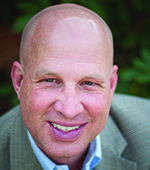 By John Chandler
By John Chandler
You have to love the evolution of the online dating scene. We’ve quickly evolved from a generic Match.com or e-Harmony into a world where customization rules. (Farmers Only, anyone?) My favorites are those that promise you will meet only people from the Ivy Leagues and other top universities. Let’s build a smart family together!
In this lies the impulse to control the uncontrollable. It can be as innocent as wanting someone with whom you have some things in common and can have a nice conversation. And as sinister as manipulating dark social futures invoking eugenics and ethnic cleansing.
In 1962, MIT scientist Joseph Altman discovered that the human brain continues to generate new nerve cells well into our adult years. Within a decade, his colleagues there were actively exploring stimulating the brain with electrical currents not simply to treat and regulate disease, but also to stimulate its efficiency. Could deep-brain stimulation stave off memory loss, for instance?
It is a short and perhaps tricky step from those early and noble endeavors to wondering what else we might accomplish through brain enhancement or stimulation. Initial forays were about better living through chemistry (whether pharmacological or electrical). Now they are evolving into fields of genomic engineering. What if we are able to design better brains?
Few will oppose genetic manipulation to cure dread diseases. But what lies on the horizon is the ability to engineer supersmart babies. We will soon move from “Datingintelligentpeople.com” to the ability to manipulate genomes associated with memory and cognition for the purpose of generating higher output. When brains are treated like ultracomputers, what happens when the hackers get loose?
Once again, the church has a great contribution to make. After all, our specialty is engaging in the ultimate questions of existence and eternity. We should have muscle for addressing questions like, “What does it mean to be mortal? Sinful? What is the good life? Where is hope to be found? How can we be saved?”
You know, Jesus said a few things about these questions. I’m hopeful his disciples will help our culture think about what work is God’s to do and what is ours to do.
